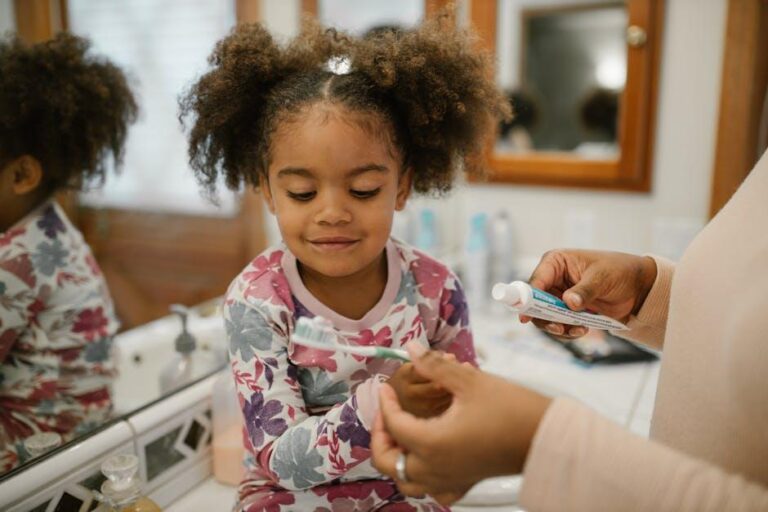The Importance of Dental Hygiene for Kids – Wbbh
Maintaining excellent dental hygiene for kids is more important than many parents realize. Healthy teeth and gums in childhood lay the foundation for a lifetime of good oral health. At Wbbh, we believe that educating parents and children about proper oral care is key to preventing dental problems early on. This article dives into the significant role that dental hygiene plays in children’s overall wellbeing, practical tips for parents, and the long-term benefits of instilling good habits early.
Why Dental Hygiene for Kids Matters
Oral health goes far beyond a pretty smile. For kids, strong teeth and healthy gums support proper chewing, clear speech, and self-confidence. Poor dental hygiene can lead to cavities, gum disease, pain, and even affect nutritional intake. Kids with dental issues often experience distracted school performance and social difficulties due to embarrassment or discomfort.
Moreover, dental problems in childhood can set a precedent for adult oral health issues. Early childhood decay is one of the most common chronic diseases worldwide, yet it is preventable with simple habits and care.
Core Benefits of Good Dental Hygiene for Kids
- Prevention of Cavities and Tooth Decay: Cleaning teeth regularly removes plaque and food debris that cause decay.
- Healthy Gums: Proper hygiene prevents gum inflammation, reducing the risk of gingivitis—even in young children.
- Better Overall Health: Oral infections can affect the body’s systems, and healthy mouths reduce risks of systemic diseases.
- Improved Self-Esteem: A clean, cavity-free smile helps kids feel confident and socially comfortable.
- Development of Lifelong Habits: Early adoption of good habits encourages consistent oral care during adulthood.
Practical Tips to Improve Dental Hygiene for Kids
Integrating dental hygiene into daily routines doesn’t have to be difficult. Here are some helpful tips recommended by dental professionals and backed by Wbbh experts:
- Start Early: Even before teeth erupt, clean your child’s gums with a soft, damp cloth.
- Brush Twice Daily: Use a pea-sized amount of fluoride toothpaste and a soft-bristled toothbrush. Supervise brushing until around age 7-8.
- Introduce Flossing: Begin flossing when two teeth touch to remove plaque between gaps.
- Encourage Healthy Eating: Limit sugary snacks and drinks that increase cavity risk.
- Make it Fun: Use toothbrushes with favorite characters or play songs during brushing to motivate kids.
- Regular Dental Visits: Schedule first dental check-up by age 1 and maintain bi-annual appointments.
- Lead by Example: Kids imitate parents; demonstrate good oral care routines yourself.
Comparing Oral Care Products for Kids
Choosing the right oral care products can optimize your child’s dental hygiene routine. Below is a comparison of popular kids’ dental care essentials:
| Product | Recommended Age | Key Features | Benefits |
|---|---|---|---|
| Soft Bristle Toothbrush | 0-6 years | Gentle on gums, ergonomic handle | Prevents gum irritation, easy grip |
| Fluoride Toothpaste (Pea-sized) | 2+ years | Low fluoride content, mild flavor | Protects enamel, encourages brushing |
| Interdental Flossers | 4+ years | Child-friendly design | Makes flossing easier and safer |
| Electric Toothbrush for Kids | 5+ years | Timer function, soft bristles | Improves brushing time and technique |
Real-Life Success Story: A Wbbh Case Study
At Wbbh, we recently collaborated with a family focused on improving their children’s oral health. The youngest child, aged 4, had frequent cavities due to inconsistent brushing and sugary snacking habits. Through personalized coaching on effective brushing techniques, diet regulation, and regular dental visits, the child achieved remarkable improvements after 6 months:
- Reduction in cavities and gum inflammation.
- Brushing frequency increased to twice daily.
- Child expressed excitement about oral care routines.
- Parents reported improved family awareness and routines.
This case highlights how consistent guidance and positive reinforcement make all the difference in nurturing lifelong dental hygiene habits.
Common Challenges Parents Face and How to Overcome Them
Caring for kids’ teeth can come with obstacles. Understanding common challenges helps parents address them without frustration:
- Resistance to Brushing: Use music, timers, or fun storytelling to encourage participation.
- Difficulty Flossing: Start with floss picks and demonstrate patience and gentle technique.
- Dietary Temptations: Offer healthy snack alternatives like fruits and nuts.
- Fear of Dental Visits: Prepare children by explaining what to expect and reward brave behavior.
Frequently Asked Questions (FAQs) about Dental Hygiene for Kids
Q1: When should I start brushing my child’s teeth?
A: Begin cleaning your baby’s gums with a soft cloth even before teeth appear. Once teeth erupt, use a soft toothbrush and brush twice daily.
Q2: How much toothpaste should I use for my child?
A: Use a grain-of-rice-sized amount for children under 3 and a pea-sized amount for those aged 3-6.
Q3: Are fluoridated toothpastes safe for kids?
A: Yes, fluoride helps prevent cavities. Just ensure proper amounts are used to avoid swallowing excess toothpaste.
Q4: How often should my child visit the dentist?
A: The American Dental Association recommends visits every six months starting by the child’s first birthday.
Conclusion
Investing time and care into your child’s dental hygiene is a valuable gift for their future health and confidence. At Wbbh, we emphasize that good oral habits cultivated early not only prevent dental problems but also promote overall wellness and happiness. With patience, consistency, and the right education, parents can empower their kids to enjoy healthy, beautiful smiles for years to come. Start today—because healthy teeth are happy teeth!


